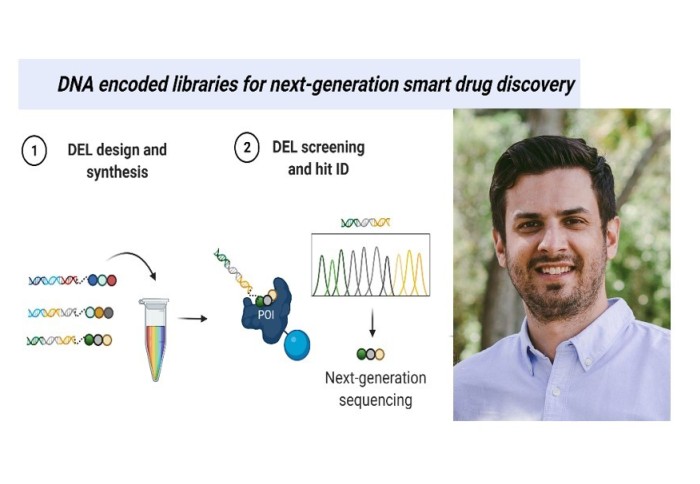Sir Charles Hercus Research Fellowship awarded

Congratulations to research associate Dr Daniel Conole on securing a Sir Charles Hercus Research Fellowship for new screening technologies
Short bio: Dr Daniel Conole completed his PhD (Deans List) in medicinal chemistry under Dame Dist. Prof. Margaret Brimble at the University of Auckland in 2013. Following his PhD, Daniel worked for Assoc. Prof. Brian Palmer and the Global Alliance for TB. In 2015, Daniel moved to the UK and began a post-doctoral research position in the lab of Prof. Steve Davies and Prof. Angela Russell at the University of Oxford working on the discovery of novel treatments for Duchenne Muscular Dystrophy. In 2017, Daniel then moved to University College London with Prof. David Selwood, where he designed, synthesised, and evaluated novel drug candidates for the treatment of heart failure and cancer. Since 2018, Daniel has been employed by Prof. Edward Tate at Imperial College London and has collaborated with Pfizer Inc. to employ an array of state-of-the-art chemical biology techniques to better understand the importance of deubiquitinase enzymes in health and disease. In this role, Daniel also identified a novel E3 ligase targeting heterobifunctional compound that will add to the chemical toolbox for targeted protein degradation.
Information about the fellowship: Daniel has been awarded Health Research Council of New Zealand 2022 Sir Charles Hercus Research Fellowship, worth approximately NZ$600k (£310k) over four years, for a proposal to employ DNA-encoded libraries (DELs) for the discovery of novel binders/degraders for JAMM DUBs, an important sub-class of deubiquitinases for cancer and inflammation.
Daniel’s Hercus fellowship will establish a next generation, smart drug screening research programme at the University of Auckland, centred around DELs. DELs are a new high throughput screening technology that is faster, cheaper, and more convenient than conventional methods.

Daniel will perform a research secondment in the lab of Prof. Mike Waring at the University of Newcastle, UK, to design and build the DELs, with the aim to transfer knowledge so that the technology can be implemented at the University of Auckland, New Zealand (host institution) for various locally based future projects. Implementation of DELs in New Zealand more broadly will result in higher success rates for drug discovery screens, and unlocked potential for diseases relevant to New Zealand, such as gout and neurogenerative diseases.
Congratulations, Daniel! We look forward to following this exciting research!
Article text (excluding photos or graphics) © Imperial College London.
Photos and graphics subject to third party copyright used with permission or © Imperial College London.
Reporter
Dr Ravi Singh
Department of Chemistry